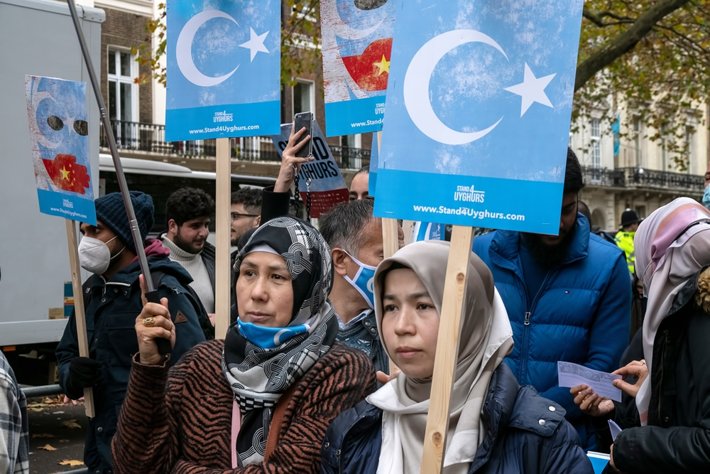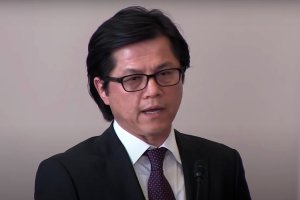In a scathing report released by the U.S. Commission on International Religious Freedom (USCIRF), the nonpartisan agency condemned what it called a worsening human rights situation carried out by the Chinese government, replete with “mass atrocities” and “systematic, ongoing and egregious violations of religious freedom targeting virtually all religious groups in China, including Uyghurs and other Turkic Muslims, Tibetan Buddhists, underground Catholics, house church Protestants, and Falun Gong practitioners.”

USCIRF also called the U.S. government to task for allowing “other competing foreign policy priorities such as trade, climate change, and security issues” to override concerns about religious freedom and human rights. The report, which also serves as a warning to the U.S. and other major players on the world stage, states that human rights, once at “the center of U.S. foreign policy,” has now, in China’s case, been sidelined.
USCIRF pointed out that although China has been roundly condemned for its abuses by multinational forums such as the UN and the G7, the rebukes and resolutions have not translated into coordinated action against the Chinese regime because of member nations’ “economic and trade dependence on China and fear of retaliation.”
The result is that China has freely pursued its policies of repression and genocide within its borders, and has expanded to a program of pursuit, harassment and intimidation of religious communities with ties to China outside its borders. These include communities within the U.S., including Uyghur Muslims, Tibetan Buddhists, Christians, and Falun Gong practitioners.
Though the U.S. has prosecuted individuals responsible for what USCIRF calls transnational repression activities within the U.S., China has continued those activities to the point of brazenly seeking to influence American policy itself. As the report states, “China’s lobbying efforts in the U.S. Congress represent a particularly insidious form of political influence, aimed at shaping federal policymaking in furtherance of the Chinese government’s interests and goals. China’s state-owned and private companies hire American lobbyists—including former members of Congress and other former U.S. government officials—to represent the Chinese government’s interest on Capitol Hill.”
As an example, USCIRF cites the case of Chinese government-owned surveillance company Hikvision, which the U.S. government had sanctioned for its complicity in human rights abuses against Uyghurs and other Turkic Muslims in Xinjiang concentration camps. Undercutting the sanctions, however, were for-hire former members of Congress who lobbied on behalf of lifting those very sanctions.
Mincing no words, the report calls “such malign political influence activities” an “alarming trend” that threatens not only religious freedom and human rights, but also represents a threat to U.S. national security and sovereignty.
The report ended with an assertion that religious freedom and human rights concerns cannot be divorced from socio-political and economic realities—that the two can coordinate. The commission proposed a fourfold solution to address China’s refusal to back down on its increasingly tech-enabled human rights and religious freedom abuses. The solution includes a coordinated multilateral push to reduce the dependence on Chinese exports, expansion of technological procedures among our trade partners that counter repression of human rights, partnering with like-minded nations to exchange intelligence on Chinese attempts to intimidate religious minorities abroad and—here at home—an ironclad ban on agents lobbying on behalf of foreign adversaries like the Chinese Communist Party.
Earlier this month the United States designated China a “Country of Particular Concern” for engaging in and tolerating particularly severe violations of religious freedom.
_________________
From its beginnings, the Church of Scientology has recognized that freedom of religion is a fundamental human right. In a world where conflicts are often traceable to intolerance of others’ religious beliefs and practices, the Church has, for more than 50 years, made the preservation of religious liberty an overriding concern.
The Church publishes this blog to help create a better understanding of the freedom of religion and belief and provide news on religious freedom and issues affecting this freedom around the world.
The Founder of the Scientology religion is L. Ron Hubbard and Mr. David Miscavige is the religion’s ecclesiastical leader.
For more information, visit the Scientology website or Scientology Network.


